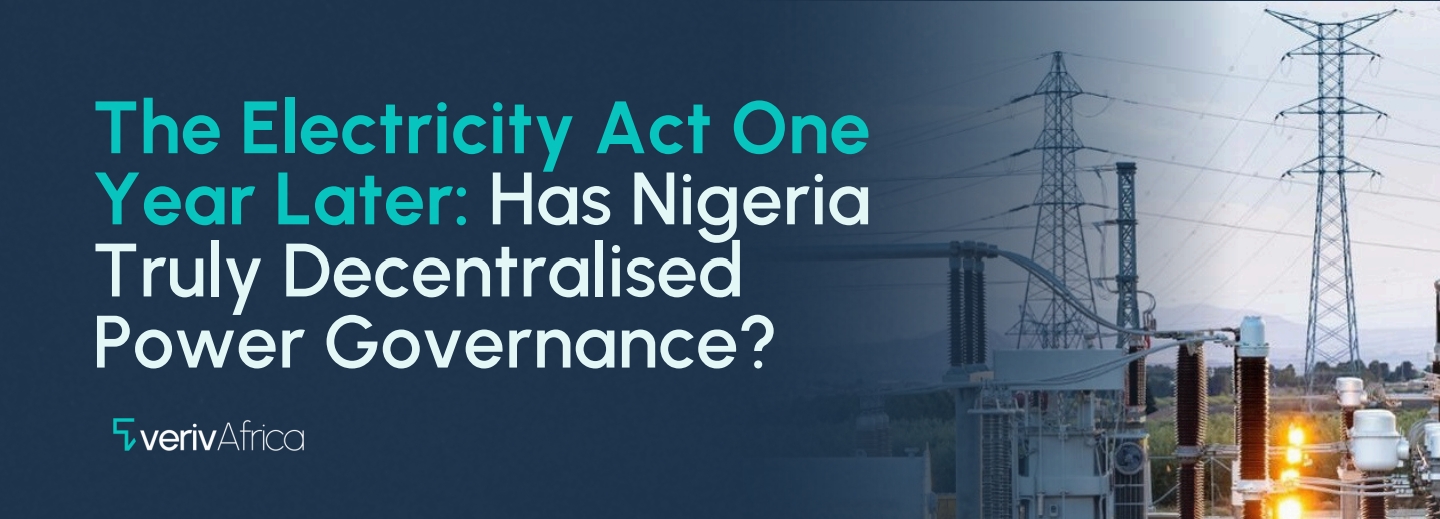The Nigerian capital markets have enjoyed a decades-long position as one of the continent’s largest, alongside those of South Africa and Egypt. This position has become increasingly tenuous in the past few years as the macroeconomy has endured a series of shocks, both external and self-inflicted. The current administration’s attempt at tackling the currency crisis, reducing the country’s huge subsidy bill, and instituting key economic and financial reforms has given the markets a new lease of life. This article discusses key characteristics of the Nigerian Stock Exchange for potential investors and offers a few recommendations for the market's leadership.
The Nigerian Stock Exchange
The Nigerian Stock Exchange Group (NGX) was established in 1961 as a member-owned, nonprofit entity with 19 securities. By 2021, it transformed into a shareholder-owned for-profit entity called the Nigerian Exchange Group, with multiple subsidiaries. Today, the exchange hosts 363 listed securities with a market capitalisation of 116.7 trillion (over $79 billion) and a daily volume averaging 400 million shares. While the exchange’s market capitalisation has declined from its high of over $120 billion in the early 2010s, the recent series of reforms by the current government centered on unifying exchange rates, improving the foreign exchange inflow, and ensuring easy repatriation of capital have improved investor confidence across the economy, and the capital markets.
The NGX provides access to multiple products, including equities, debt (corporate and sovereign), exchange-traded products (ETFs), and derivatives. Debt instruments account for over 40% of the total market capitalisation of listed securities and include domestic borrowing by the federal government, state governments, and select corporate entities. On the other hand, the equity market consists of 144 listed securities, with a market capitalisation of over $41 billion, which accounts for nearly 60% of the total market capitalisation on the exchange. The most representative sectors include financial services, consumer goods, and general services.

Chart: Veriv Africa. Source: The Nigerian Exchange Group
While the above chart depicts the distribution of equities across sectors, the underlying value of each sector differs considerably. As the chart below shows, the ICT/Telecom sector, with just eight companies, contributes the most (28%) to the stock exchange’s market capitalisation, with financial services at a distant second. Other sectors, such as consumer goods and industrial goods, round up the top four sectors by market capitalisation, with the four sectors accounting for 84% of the exchange’s total market capitalisation.

Chart: Veriv Africa: Source TradingView & NGX
Key Considerations for Investors
As the previous section shows, there is a choice of over 144 equities and multiple government and corporate bonds on the NGX. So far, municipal bonds by local governments, as is common in key exchanges around the world, are currently unavailable. However, ongoing reforms to local government finances and fiscal independence, if successful, might help make these products available soon. In the meantime, there are multiple state government bonds to choose from.
Beyond the choice of security, there are other key considerations worth stating. Foremost, the level of liquidity, driven by trading interest, varies among equities. While the daily trading volume averages 400 million shares, valued at over 20 billion Naira ($12.5 million), the bulk of these trades are restricted, mainly to a few equities. These are primarily in the financial services and consumer goods sector, with select well-capitalised stocks in telecom and industrial services. Thus, investors involved in short-term trade and/or interested in retaining the option of switching stocks or repatriating capital in the near term would be better off focusing on the most liquid stocks.
Secondly, the level of reporting and disclosures varies significantly among companies on the exchange. Sectors, such as financial services, especially the banking sector, are by law required to make significant disclosures and are subject to a high degree of regulatory oversight from the Central Bank, the SEC, the Nigerian Deposit Insurance Corporation, and other relevant agencies. Furthermore, their reliance on continued partnership with financial institutions around the world and external investors means that these companies must meet minimum corporate governance requirements. This isn’t the case with other companies on the exchange. There have been cases of repeated delays in regulatory filings, including extended delays in providing audited financial statements. A look at the listed companies on the NGX shows companies with the MRF (missed regulatory filing) flag next to their ticker symbols. Value-based and bottom-up investors who rely on rigorous research before investing might struggle to make an informed decision. As a general principle, companies on the exchange’s premium board, the most elite category of NGX companies, tend to be most compliant with requisite filings.
Thirdly, it is essential to understand the ownership dynamics and minimum float requirements of the exchange. The NGX equity listing provides a choice of three board categories: the premium board, the main board (where most companies are listed), and the growth board (for promising tech, renewables, and small and medium-sized businesses). Each board category has its listing requirements, including minimum market cap, revenues, years of operation, and float. The minimum float (the percentage of the company's shares that must be sold to the public) varies between 15 and 20%. This means that a sizeable chunk of some companies’ ownership remains with their founders, founding families, or parent companies (in the case of foreign brands primarily listed on their home country exchanges). This relatively small floating percentage could have implications for corporate governance and shareholder activism, especially for activist investors. The latter category might want to focus on companies with larger floating stocks.
Finally, there is a need to understand the broader macroeconomy in which these companies operate. At the height of macroeconomic instability in 2023, the consumer goods sector took a hit due to the scarcity of forex, which made the importation of critical raw materials either impossible or costly. The sector also suffered reduced demand as the impact of currency devaluation, reduced purchasing power, and increased hardship hit the country in the 2023-25 period. Conversely, as the central bank raised rates in a bid to tackle inflation, and made an effort to stabilise the country’s currency, the banking sector raked in significant profit. Thus, an understanding of the local economy, which can be found in our macroeconomic outlook for 2025, ongoing global economic and geopolitical trends, and developments in the oil markets (on which Nigeria relies for FX and government revenues) is critical to better analysing the potential of stocks on the exchange.
On a positive note, the Securities and Exchange Commission and NGX leadership have implemented a range of reforms aimed at deepening the capital markets. The recent acquisition of a 10% stake in the Ethiopian Securities Exchange by NGX and a few investors bodes well for increased cooperation among African stock exchanges. As stated in our previous primer on African capital markets, improved interoperability among African stock exchanges will help increase the choice of stocks, reduce friction, and deepen the capital markets of smaller African countries. The ESX stake, in addition to the African Exchanges Linkage Project, could transform the continent’s capital markets, especially as the drive for the African Continental Free Trade Agreement (AfCFTA) continues. In addition to the above, the NGX Invest platform further enhances the exchange’s technology drive to reduce friction and enable seamless access to investment opportunities for both institutional and retail investors.
Conclusion
While Nigeria has recently lost its position as the continent’s largest economy, it remains a leading market and is home to one of the continent’s most sophisticated financial markets. The NGX provides an opportunity for investors to tap into this market if key precautions are taken. Our team works closely with institutional and HNW investors interested in the NGX and other key exchanges on the continent. Contact us today, or read our insights and reports.
References
The Nigerian Exchange Group. (2024). Annual report and accounts. https://ngxgroup.com/ngx-download/ngx-annual-report-2024/?wpdmdl=39457&refresh=680eebc83b1ea1745808328
The Nigerian Exchange Group. (2025). Listed companies. https://ngxgroup.com/exchange/trade/equities/listed-companies/
Veriv Africa. (2024). Macroeconomic outlook 2025. https://www.verivafrica.com/2025outlook










